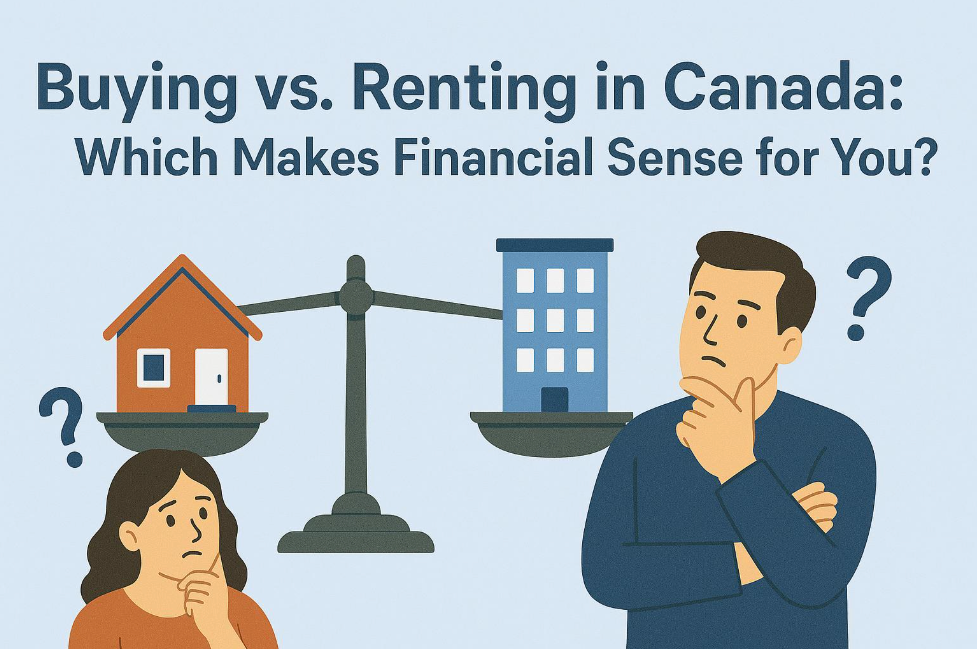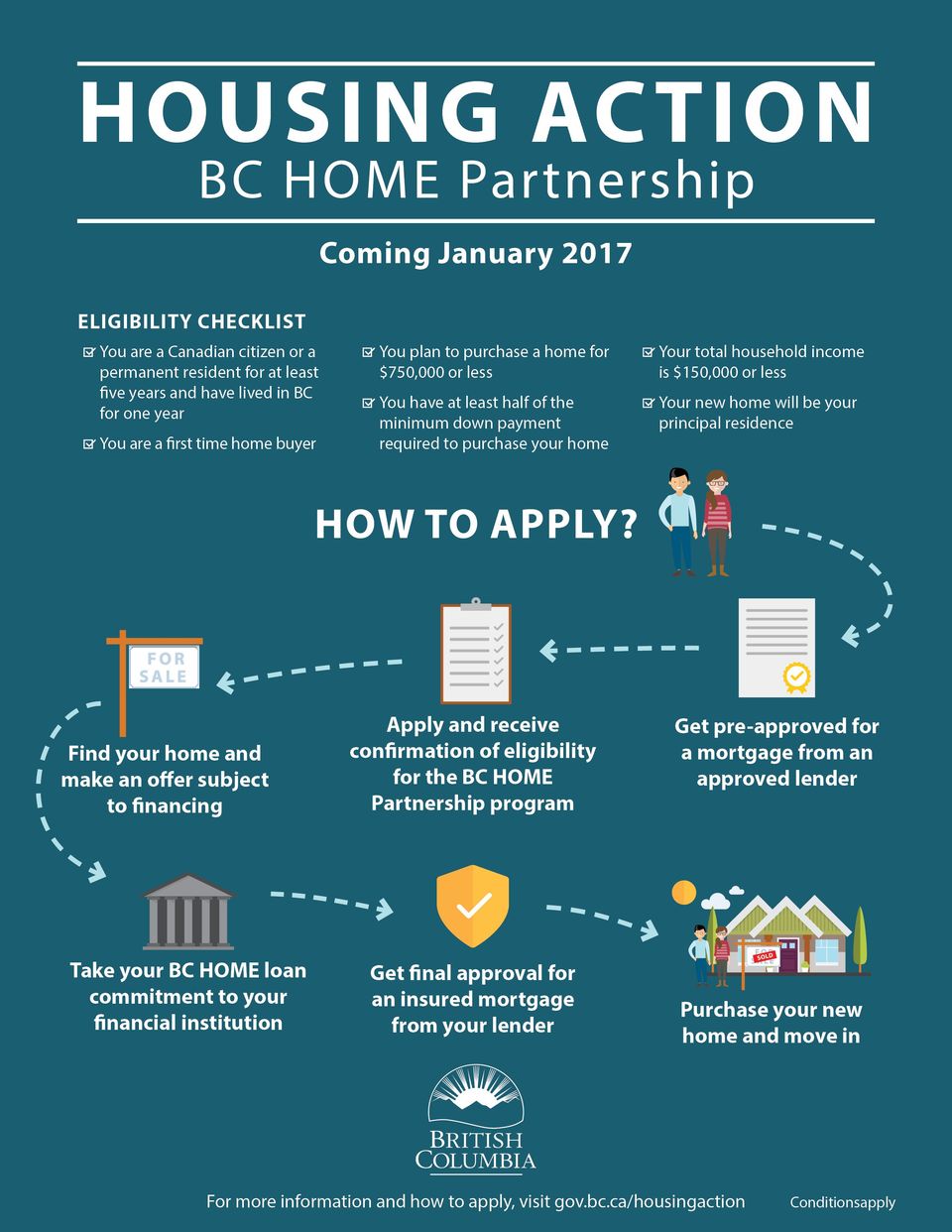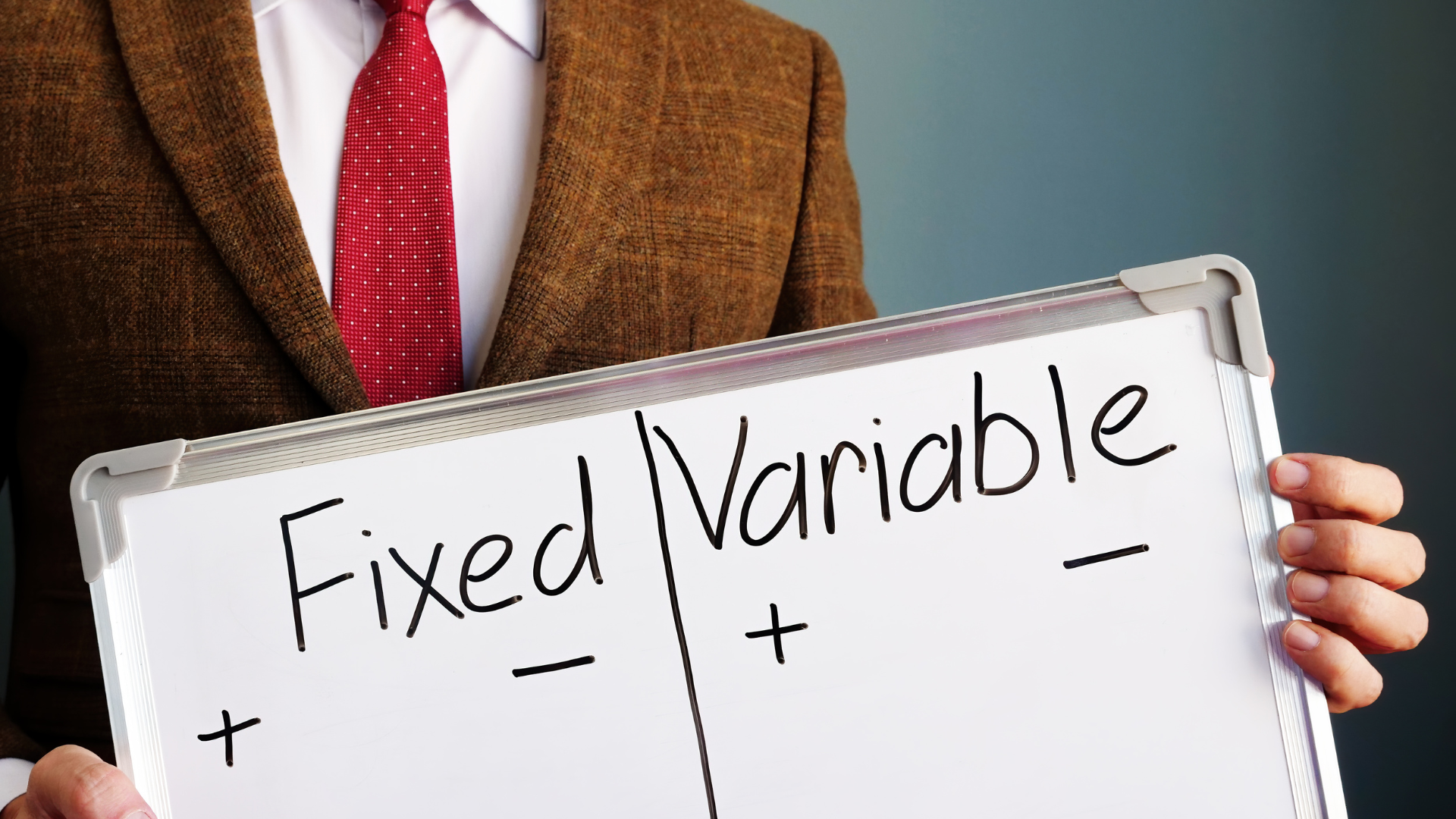BC HOME Partnership Program starting Jan. 16, 2017
Metro Vancouver is expensive and large down-payments are a result of high real-estate costs. The BC HOME Partnership Program matches down payments to a maximum of 5% of the home value. This addresses one of the biggest challenges facing first-time home buyers… saving a down payment.
To be clear, this is not a grant. The loan doesn’t reduce the income-qualification requirement for new homeowners. It provides a five-year interest-free loan.
The BC HOME Partnership Program (BC HOME loan) was created for first time home buyers who have good credit and strong income but do not meet the requirements for a minimum 5% down payment. The BC Home Partnership Program allows BC residences to buy their home with a 2.5% down payment.
The BC HOME loan is only available to eligible homebuyers requiring an insured first mortgage for the purchase of their home with less than a 20% down payment.
The home must be occupied as the homebuyer’s principal residence for the first 5 years (or less if the home is sold).
How does it work?
The BC Government will match the home buyer’s down payment with up to 5% of the price of a home (as long as the home is worth less than $750,000).
The BC HOME loan is for a 25-year term, which is interest and payment free for the first five years. The loan will be registered on your property title as a second mortgage .
The home buyer may repay the BC HOME loan in full or in part at any time with no penalty.
At the start of year 6, interest will start accruing and the homebuyer will begin making monthly payments of principal and interest, amortized over the remaining 20 years. The first 5 years the homebuyer was not required to make payments of principal and interest.
When you sign up for the program, the BC Government will set the interest rate for year 6-10 at the Royal Bank of Canada Prime Rate (currently 2.7%) plus 0.5% = 3.2%, and reset the interest rates at the 10 th , 15 th and 20 th anniversary dates.
Thus, starting in year 6, the homeowner must pay back both their original mortgage and the BC HOME loan.
Making Sense of It
New applicants must first qualify under the new mortgage rules to qualify for BC HOME Partnership Program
In the fall 2016 the Federal Government announced major changes to Canada’s housing rules with a mortgage rate stress test (bench mark currently 4.64%) being the most significant.
As of Oct. 17, 2016 a stress test of 4.64% for approving high-ratio mortgages has been applied to all new insured mortgages. Another aspect of the stress test require that the home buyer will be spending no more than 39% of income on home-carrying costs like mortgage payments, heat, property taxes & 50% of strata fees (if applicable). Another measure called total debt service (TDS) must not exceed 44% and includes home carrying costs PLUS all other debt payments (credit card, loans, lines of credit, etc.).
Due to the newly imposed Stress Test, the borrowing power of many Canadians was reduced by about 20%.
How do I know if this program is right for me?
If you’re a first time home buyer affected by these changes, you need to seek the advice of an independent mortgage broker. I will work with you to understand the new home buying rules and help you buy your first home.
How to apply Program Overview and Applicant Information
The best time to apply is after you’ve saved for a down payment and worked with your mortgage broker to get Pre-Approval/Rate Hold for a mortgage.
Once you have a Pre-Approval, you apply for the BC HOME Loan before you start house hunting.
Learn more about the BC HOME Partnership program and how to Apply Online with supporting documents. Only completed applications with all supporting documents will be considered.
BC Housing will evaluate your application and determine your eligibility. You will be emailed once your application has been processed.
If your application is accepted, you will receive confirmation of pre-approval and a Homebuyer’s Package, which includes detailed information on the steps you need to take to receive the BC HOME loan.
Once approved, applicants can make an offer on a home knowing the loan amount that will be available to them from BC Housing. They will also know the legal costs they’ll have to pay to take out the BC HOME loan.
Are You Eligible?
To qualify for BC HOME Partnership loan, everyone who appears on the title of the home must meet the following criteria:
- Be a Canadian citizen or permanent resident for the last five years
- Have lived in British Columbia for at least the full 12 months preceding your application
- Be a first-time homebuyer who has not owned an interest in a principal residence anywhere in the world at any time and has never received a first-time homebuyers’ exemption or refund
- Purchase a home that is $750,000 or less.
- Be eligible for a high-ratio insured first mortgage for the home
Other criteria are:
- The combined, gross household income of all individuals on the title must not exceed $150,000.
- The home being purchased must be used as the principal residence of all individuals on the title for the five years after purchasing.
Use the online calculator can help you determine if you meet BC HOME Partnership eligibility criteria.
The BC HOME Loan program ends March 31, 2020.
Would you like more information regarding BC HOME Partnership Program? Give me a call and let’s have a chat.
Kelly Hudson
Mortgage Expert
Mobile: 604-312-5009
Kelly@KellyHudsonMortgages.com
www.KellyHudsonMortgages.com








